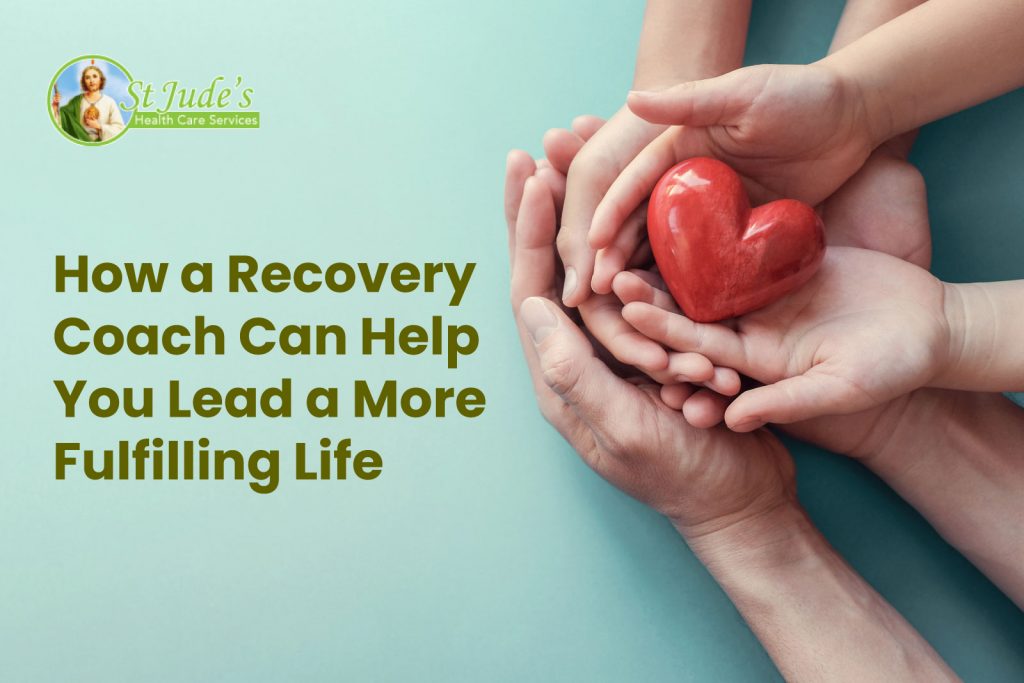The NDIS is a new organisation, and therefore many people are still confused about what all of their services and terminology mean. For instance, recovery coaches can help people suffering from mental health conditions to live a more fulfilling and independent life by coaching them through a variety of capacity building techniques. If you are an NDIS participant with a psychosocial disability, and you are unsure whether a recovery coach will be helpful, then this article will explain all the benefits of their services.
What Is the Role of a Recovery Coach?
A recovery coach is an NDIS funded professional who helps people with psychosocial disabilities to manage the challenges of daily life. They help participants become more involved in their own life, and assist them with organising other support services as well. Recovery coaches aim to increase participants’ social and financial independence, and help the person to build personal strength, motivation, resilience and decision-making skills. An NDIS recovery coach works with family, friends, and carers to create a recovery plan that suits each individual person’s needs. When you are working out your NDIS plan, you will be able to choose a recovery coach who has lived experience of psychosocial disability and mental health, or someone with learnt knowledge of these experiences.
Having an NDIS plan manager to help with managing your finances can be a huge help, especially if there are quite a few invoices to be paid.
What Is a Psychosocial Disability?
A psychosocial disability is when a disability has arisen from a mental health issue, it is determined by the functional impact and barriers that someone experiences from their mental health condition. Not every person with a mental health condition will experience a psychosocial disability, but if they do it can affect their ability to enter some environments, concentrate, be organised, interact with other people, and cope with stress. Some examples of psychosocial disabilities are anxiety disorders like obsessive compulsive disorder and post traumatic stress disorder, or mood disorders like bipolar, and schizoid disorders such as schizophrenia.
Benefits of Working With a Recovery Coach
Get the Most Out of Your Plan
A recovery coach will help you to make the most of your NDIS plan. They support your engagement with the NDIS and help you make sure you are receiving all of the support services you require. Your recovery coach will help with creating a clear goal for your NDIS plan, and will streamline access to local service providers to ensure you are getting the best help.
Improve Recovery Skills
One of the main purposes of a recovery coach is to help you increase your recovery abilities. This can include identifying your personal strengths, improving motivation, building determination, and working on your decision-making skills. These abilities are essential for moving forward with your recovery. By working with a recovery coach, you are building skills that will help you to create a more fulfilling and enjoyable future life.
Feel Supported Long-Term
A recovery coach does not simply set you up with your NDIS plan and then leave, they are there to support you for the long haul. You can rest assured that your recovery coach will be with you through all your ups and downs and help you to manage these situations. Recovery coaches work to build a trusted relationship with participants, so that you will feel comfortable and safe working with them.
Learn From Someone With Similar Experiences
With NDIS recovery coaches, you have the opportunity to choose a coach who has lived through similar experiences as you. Having a recovery coach who is also recovering from a mental illness can be extremely motivating, as you can learn about the journey they have been on and what methods have worked for them. They can draw on their own personal experiences when talking to you and make things more relatable, and make recovery seem more possible.
Can Recovery Coaches Work With Families as Well?
Recovery coaches often work with the families of participants as well, but they must be careful and explore the meaning of family support with their participant first to find out whether they have reasons for not wanting their family to be involved. Growing support for the participant from their family members is an essential part of the recovery process, and recovery coaches can work to change the perspectives of either the participant or the family in order to create a more successful situation. A recovery coach must approach these tasks gently and find out whether an increase in family involvement will be positive or negative for the participant.
What Psychosocial Disabilities Are Covered By NDIS Funding?
Before getting into what psychosocial disabilities the NDIS covers, it is important to note that the NDIS will not offer all of the services needed for someone with a psychosocial disability. The NDIS is meant to operate alongside other government services that offer support for people with mental health conditions.
It is difficult to make a complete list of specific psychosocial disabilities that the NDIS covers, because the decision is based on each particular case. The NDIS provides funding for people with a permanent and significant functional impairment that has arisen because of a mental health condition. You will only be able to access services which are considered ‘reasonable and necessary’ by the NDIS. These services are usually within three categories, assistance with daily living tasks, capacity building, and help with community and social participation.
Finding An NDIS Registered Provider
An NDIS recovery coach can definitely make a world of difference for someone suffering from a psychosocial disability, but in order to access their services you will have to find an NDIS registered provider. When you look for providers of the NDIS Perth, just make sure you choose a provider with plenty of experience, and one that will help you understand the process and access NDIS funding.











